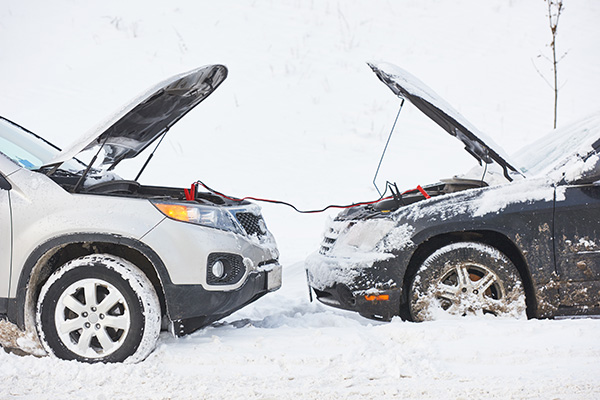
Few things are more frustrating than heading out on a cold morning only to find that your car won’t start. Freezing temperatures can put extra strain on your vehicle’s battery, engine, and fluids, making it more difficult for your car to fire up. Whether you’re dealing with a weak battery, thickened oil, or frozen fuel lines, knowing what to do when your car refuses to start can save you from unnecessary headaches.
Why Cold Weather Makes Starting Your Car Harder
Cold temperatures affect your vehicle in multiple ways, but the most common issue is a weak battery. Car batteries rely on a chemical reaction to generate power, and when the temperature drops, that reaction slows down. This reduces the amount of power available to turn over the engine.
Thicker engine oil is another problem in freezing temperatures. As the oil gets colder, it becomes more viscous, making it harder for the engine to turn over. If your oil is too thick for the season, your engine may struggle to start.
Fuel system issues can also arise in extreme cold. Moisture in the fuel lines can freeze, blocking fuel from reaching the engine. Diesel engines, in particular, are prone to fuel gelling in low temperatures, which can prevent combustion.
What to Do When Your Car Won’t Start in Cold Weather
If your car refuses to start on a freezing morning, don’t panic. Try these steps to diagnose and fix the issue.
1. Check the Battery
A weak or dead battery is the most common reason cars fail to start in cold weather. If you turn the key and hear a clicking sound or nothing at all, your battery may not have enough power to crank the engine.
Try jump-starting the car using jumper cables and a second vehicle. If the engine starts after a jump, your battery may need to be replaced. For future prevention, consider using a battery warmer or parking your car in a garage to keep the battery from getting too cold overnight.
2. Turn Off Electrical Accessories
Before you attempt to start your car again, turn off all electrical accessories like headlights, seat warmers, and the radio. These features draw power from the battery, and turning them off can give the battery more energy to start the engine.
3. Try the Starter Again
If your car didn’t start on the first try, wait about 30 seconds before attempting again. This gives the battery time to recover a bit before another crank. If the car still won’t start after a few tries, further troubleshooting may be necessary.
4. Check the Fuel System
If your engine cranks but doesn’t start, there could be an issue with the fuel system. A frozen fuel line can prevent fuel from reaching the engine. If you suspect this is the problem, try warming up the fuel system by using a space heater in the garage (if it is safe to do so) or adding fuel line antifreeze to the tank.
Diesel drivers should ensure they’re using winter-grade fuel, as regular diesel can gel in freezing temperatures.
6. Use the Correct Engine Oil
If your oil is too thick for cold temperatures, it can cause slow or difficult starts. Check your owner’s manual for the recommended oil viscosity for winter conditions. Switching to synthetic or winter-grade oil can help keep your engine running better in the cold.
7. Let the Engine Warm Up
Once your car starts, don’t drive off immediately. Let the engine idle for a minute to warm up the oil and other fluids before hitting the road. This can help prevent unnecessary wear on engine components.
How to Prevent Cold Weather Starting Issues
The best way to avoid cold weather starting problems is by taking a few preventative measures.
- Check your battery before winter hits – If your battery is over three years old, have it tested and replace it if necessary.
- Keep your fuel tank at least half full – This reduces the chances of moisture freezing in the fuel lines.
- Park indoors or use a car cover – Keeping your vehicle out of the wind and freezing temperatures can help prevent battery and engine issues.
- Use a battery warmer – If you live in an extremely cold climate, a battery warmer can help maintain power in low temperatures.
- Regular maintenance – Keeping up with oil changes and using the right winter-grade oil can reduce the strain on your engine during cold weather.
Don’t let winter leave you stranded! Visit Portland Automotive in Portland, CT, for a battery check, oil change, and cold-weather maintenance to keep your car running strong this season.